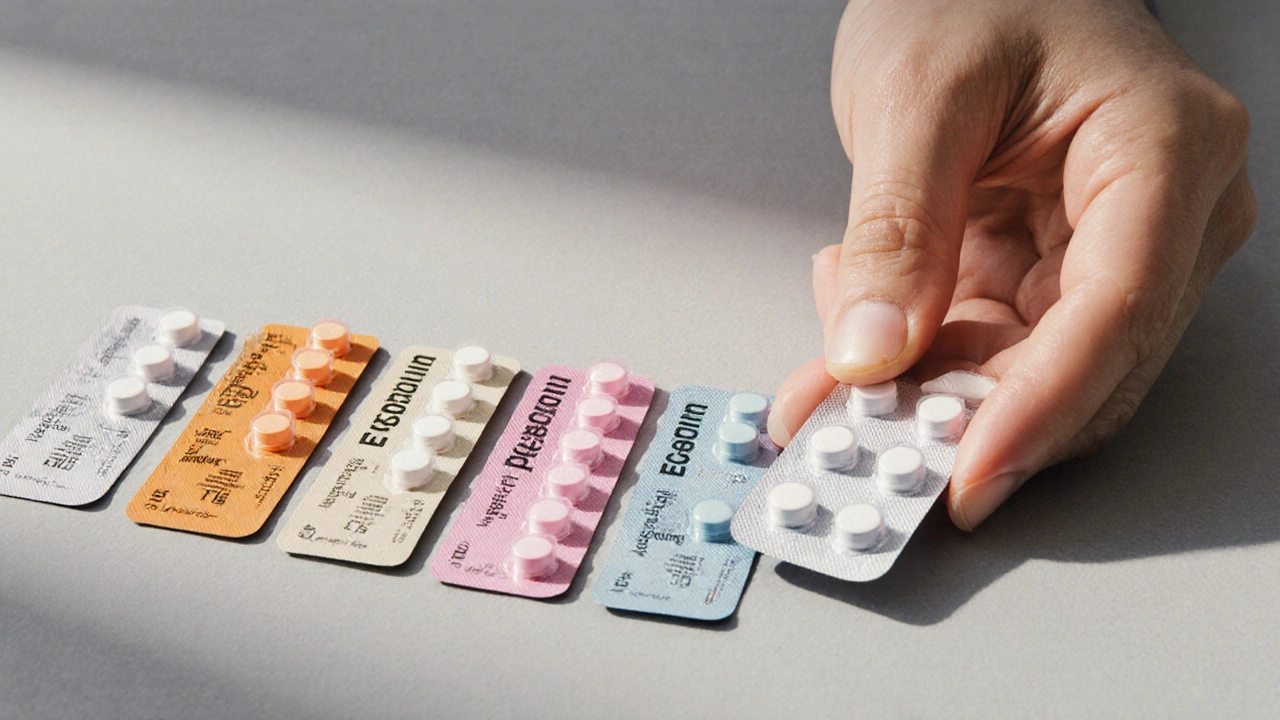Acetaminophen: Smart, Safe, and Effective Pain Relief
Acetaminophen (you might know it as paracetamol) is a staple in almost every medicine cabinet. If you have a headache, muscle aches, or a fever, this is probably the first thing you reach for. It works fast and doesn't irritate your stomach like some painkillers.
Most people think acetaminophen is always safe. The truth? You need to respect the dosage. Adults should never go over 4,000 mg in a day, or your liver will take a hit. Accidentally doubling up—say you take a cold remedy plus regular acetaminophen—happens more than you’d think. Always check the label on combo meds. They hide acetaminophen in a lot of them!
Don't love swallowing pills? Liquid, chewable, and even dissolvable forms are available. But dosage still matters. That means measuring, not guessing.
Taking acetaminophen on an empty stomach? No problem—you don't need food for this one to work, unlike some other pain relievers. That makes it super handy if you’re feeling nauseous from a fever or illness and can’t eat.
Wondering about drinking with acetaminophen? Go easy. One drink is typically fine, but long-term heavy alcohol use plus regular acetaminophen ramps up the risk for liver damage. If you drink a lot or have underlying liver issues, talk to a doctor before using it often.
This go-to pain reliever is usually well-tolerated, but nobody’s immune from side effects. If you notice yellow skin, confusion, or belly pain after using it, head to a healthcare provider immediately—those are red flags your liver might be struggling. Itching, rash, or swelling? Could be an allergy, so stop right away.
Kids can take acetaminophen safely with the right dosing. Always double check the bottle—kids' and infants' versions aren't the same, and using a kitchen spoon isn’t smart since they’re all different sizes. There are handy syringes or dosing cups that come with most pediatric versions to make it simple.
Want acetaminophen to do its best work for fever? Use it when your temperature actually makes you feel lousy, not just because the number is a little higher. The goal is comfort, not chasing perfect thermometer readings. If fevers keep coming back or you need acetaminophen every day for more than a couple of days, check in with your doctor. Worsening headaches, ongoing pain, or repeated fevers are worth getting checked out.
The main takeaway is, acetaminophen is your friend—when you use it wisely. Don’t max out the dose, double-check labels, and pay attention to your body. It works fast, rarely messes with your stomach, and is gentle enough for kids and adults. You just need to use common sense and some label-reading skills.

Ecosprin (Aspirin) vs Common Alternatives: Detailed Comparison Guide
A practical guide comparing Ecosprin (aspirin) with ibuprofen, naproxen, acetaminophen, clopidogrel and enteric‑coated aspirin, covering uses, side effects, dosages and when to switch.

Acetaminophen and Your Brain: What You Need to Know
Acetaminophen is a common over-the-counter medication used for pain relief and fever reduction. However, many people are unaware of its potential effects on the brain. This article discusses how acetaminophen can influence emotions and decision-making, as well as safety tips for its use. We explore findings from recent studies and offer practical advice for anyone taking this medication. Understanding these effects is crucial for making informed decisions about health.




